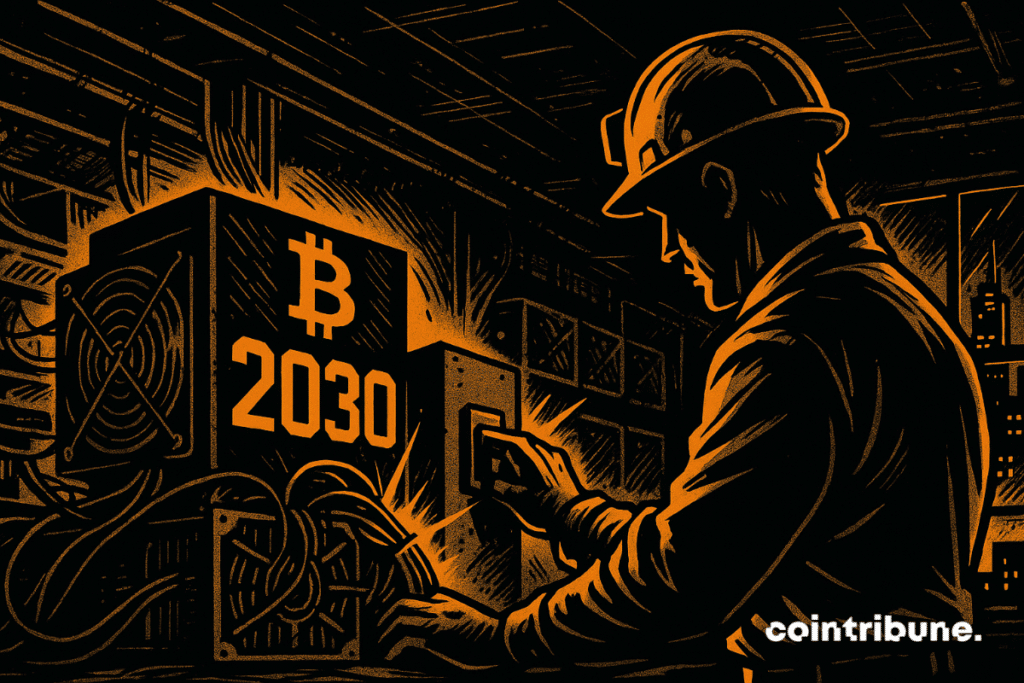Quantum Computing Could Shatter Bitcoin’s Foundation Within 5 Years—Here’s How
Quantum computers aren't coming—they're already here. And they're gunning for Bitcoin's cryptographic heart.
The countdown to crypto's quantum reckoning starts now.
Why Bitcoin's encryption won't stand a chance
Today's supercomputers would need millennia to crack Bitcoin's SHA-256 encryption. Quantum machines? Maybe five years. They don't brute-force solutions—they rewrite the rules of mathematics itself.
The mining apocalypse nobody's preparing for
Quantum algorithms could solve Bitcoin's proof-of-work puzzles in seconds. Imagine mining rewards distributed not to the most dedicated—but to whoever owns the fanciest quantum rig first. So much for decentralization.
Wall Street's already placing bets—on both sides
Hedge funds are quietly shorting Bitcoin while long-shot investing in quantum-resistant blockchain startups. Because nothing makes financiers happier than profiting from both the crash and the recovery. Typical.
This isn't theoretical—it's inevitable
When quantum supremacy hits cryptocurrency, it won't be a gradual transition. It'll be a switch flip. One day your wallet's secure—the next, it's an open book.
Bitcoin either evolves or dies. The clock's ticking.

In brief
- Solana co-founder Anatoly Yakovenko estimates there is a 50 % chance of a major breakthrough in quantum computing by 2030.
- He calls on the Bitcoin community to migrate to post-quantum cryptography to avoid a critical security flaw in wallets.
- Bitcoin’s current algorithm (ECDSA) could become vulnerable if a sufficiently powerful quantum computer comes into existence.
- A security update would involve a hard fork, an option often rejected by the Bitcoin community.
The urgency of cryptographic adaptation
At the All-In Summit 2025, Anatoly Yakovenko, co-founder of Solana, issued a direct warning to the bitcoin community, while the SEC is also tackling the issue of quantum security.
Believing that progress in quantum computing is much faster than expected, he said : “I think there is a 50% chance in the next five years that there will be a quantum breakthrough.”
According to him, the time for theoretical speculation is over, and concrete preparation is needed. “We should migrate bitcoin to a quantum-resistant signature scheme,” he stated.
Such a statement echoes his concerns about the cumulative effect of converging technologies like artificial intelligence, advanced optics, or new computing paradigms.
Yakovenko reveals the fundamental vulnerability of the Bitcoin protocol to a quantum breakthrough, which could call into question the foundations of its security. Currently, Bitcoin wallets rely on the ECDSA (Elliptic Curve Digital Signature Algorithm), whose strength depends on the difficulty of solving the elliptic curve discrete logarithm, a mathematical problem impossible for classical computers.
However, here is what could change if a functional quantum computer came into existence :
- Private keys could be derived from public keys, making millions of funds vulnerable ;
- Current hashing and signature algorithms would become obsolete, compromising past and future transactions ;
- A switch to post-quantum cryptography would require a hard fork, a technically heavy and politically sensitive operation ;
- David Carvalho (Naoris Protocol) specifies that a quantum computer could “tear apart bitcoin’s cryptography in less than five years”, if current trends continue.
Yakovenko’s warning about bitcoin is not mere speculation. It fits within a context where accelerating technology renders old deadlines obsolete. For him, delaying adaptation WOULD mean underestimating an existential risk.
Persistent skepticism within the Bitcoin community
While Yakovenko’s warning triggered some attention, it was not received with the same urgency across the ecosystem. Among historical Bitcoiners, the tone is much more measured.
Interviewed last June, Adam Back, CEO of Blockstream and respected figure in the cypherpunk movement, stated that current quantum computers “do not represent a credible threat to Bitcoin’s cryptography”, while conceding that a future threat remains probable. In his view, it might take 20 years before a real danger level is reached. This timeline strongly contrasts with that mentioned by Yakovenko.
Samson Mow, founder of Jan3, also acknowledges a real risk but believes the timeline is probably still a decade away from becoming critical. He even downplayed the potential impact of this threat : “I would say everything else will fail before bitcoin fails.”
Any major cryptographic modification to the Bitcoin protocol would imply a hard fork, a rule change for which community consensus is notoriously difficult to obtain. Such an operation could be technically complex, as the flagship crypto is undergoing deep changes.
Maximize your Cointribune experience with our "Read to Earn" program! For every article you read, earn points and access exclusive rewards. Sign up now and start earning benefits.

